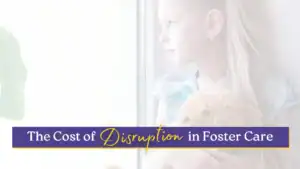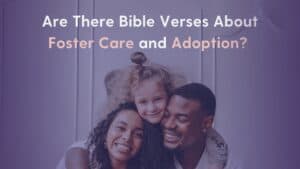When 9-year-old Abigail moved into Cal and Terrie Morrow’s home in August of
2014, she had no reason to think that she’d found her forever family.
Abbey had been in Tennessee’s foster care system since age 2. She’d already lived in at least six
different foster homes and been placed for adoption once, only to have that family later back out.
She’d lived in two different residential treatment centers — at age 6, with all teenage girls, and
at age 8, mostly with adolescent boys. She’d had at least 22 people in parental roles. Fearful, hurt
and angry, she had frequent, prolonged and violent tantrums.
Cal and Terrie didn’t think Abbey’s placement in their home would be permanent, either. The Michigan
couple — he, a then-65-year-old manager of a used-car lot; she, a 57-year-old special ed teacher
— had already raised their children. They weren’t looking to raise any more and didn’t think they
were in a position to parent a child with Abbey’s issues.
“Before we met Abigail, we’d been seeking God’s will in our lives for the last few years, wondering
what were the next steps we should take,” Terrie says. “We didn’t realize this was it. Raising a
child hadn’t even crossed our minds — not adoption, not foster care, not anything.”
But then they met Abbey. And on Oct. 29, 2015, they adopted her — a landmark event in a journey
the Morrows like to call “The Abbey Road.” That road, however, was both more difficult and more
joyful than they ever imagined.
‘She had to get out of there’
Cal and Terrie met their future daughter in 2013, while visiting
their grown daughter, Liz — a newlywed who, with her husband, Kyle, had taken Abbey into their
Tennessee home as a foster child. Abbey’s extreme behavior was more than the young couple could
handle. But she captured Cal’s and Terrie’s hearts when they met her, and they worried about her
from the moment she was taken to another home.
“We kept seeing the face of a beautiful brown-eyed little girl with no family, no home, no one on
the planet speaking for her,” Terrie says. “We’d wake up at night when there was a storm, wondering
how she felt in a storm. We’d wake up when one of us was sick, wondering who was taking care of her
when she got sick. It wouldn’t leave us.”
The Morrows resolved to be Abbey’s advocates — to do what they could to find her a permanent home,
not yet thinking it would be their own. They tried to follow her placement from a distance —
sometimes losing track of her, finally finding her in Georgia, in a residential treatment center for
boys. After visiting her there in October 2013, they both knew what they had to do.
“We visited her for only four hours in the lobby of the center, and we saw the hopelessness on her
face,” Cal says. “We cried most of the way home. That was the turning point for me. She had to get
out of there. She had to come home with us. She had to be loved, cared for, built up. God loved her,
and we loved her. How would she know that if we didn’t live the love of Jesus and pour out our lives
to her?”
A time of trial
It would take nearly another year for the Morrows to become licensed foster care
parents and bring Abbey into their home. And once they did, things didn’t get any easier.
Still traumatized by all she’d gone through, Abbey’s tantrums remained frequent, prolonged and
violent. For the first few months, just putting her to bed was a nightly war. Cal and Terrie had to
devote all their hours to dealing with her, unable to turn her care over to anyone else even
briefly. Their time together as a couple, their social lives, their church lives — all virtually
vanished.
“We wondered, What have we done?” Cal says. “We believed our lives as we knew them were all over and
there would be no going back to what we once had. I was scared many times because of her violence.
Many times I felt very unequipped and felt like a failure as a dad. I did not want to be left alone
with her, for fear of how to manage her in a meltdown.”
And one thing more. “Abbey hated God,” Terrie says. “She hated Jesus, prayer, Christian music,
everything. Bring them up and she’d curse, spit, kick.”
Terrie was angry with God, too. “My attitude toward Him was: ‘You promised! Your Word says You
take care of Your children! I don’t see a blessing here. I can’t even breathe.’ ”
It took a lot to get through those months. It took commitment, endurance and patience. It took
learning and understanding that Abbey’s behavior was rooted in her traumas and fears, and that she
needed comfort, not combat.
And it took prayer — vast amounts, by the Morrows and many others — for spiritual protection,
for Cal and Terrie to have strength for the task, for Abbey to be healed and to recognize the
Morrows’ love and the love of her Father in heaven.
From hopeless to hope-filled
The tide eventually turned. Abbey came to take comfort in listening to
Christian music with Cal and Terrie. She started attending a Christian school, even leading family
prayers. And one night in September 2015, she said her own 10-year-old version of a salvation
prayer:
“Dear God, I want to live in heaven when I die. I know there are no such things as mermaids, but
could I have a mermaid’s tail in heaven? I like tails better than my legs. And could I have wings in
heaven, too, God? I want Jesus to come into my heart. Please forgive me of my sins. OK, God? Amen.”
Abbey, now 12, still has issues. She still needs help learning to socialize and handle daily life.
But the violent tantrums are in the past, replaced by occasional childish fits. She’s bonded with
Cal and Terrie. She’s grown to love and trust them — and the Lord.
“I’ve seen her transformation,” Cal says. “I’ve seen her change from hopeless to hope-filled. Now
we’re blessed by Amazing Abbey. My conversations with her in the morning when I drive her to school
are amazing. I know I am doing what God wants me to do, and I know that God has entered her life.”
Those conversations in the car stay with Terrie, too. She recalls one sparked by a song about Jesus’
coming return. Abbey enthusiastically urged that they get their house ready “so He can come and live
with us.” When Terrie wondered what Abbey would ask Jesus when He did return, the girl was quick to
reply:
“I will ask Him what heaven is like. Then I will ask Him to baptize me because when Jesus baptizes
you, He takes all of your bad stuff away and you don’t have to remember it anymore.”
Matt Kaufman is a freelance author based in Illinois.
What Empty-Nest Families Can Offer a Child
Empty nesters who have finished raising their kids still have plenty to offer children who have no
home of their own
“Empty-nest families usually aren’t trying to fill a void in their lives,” says Jason Weber,
national director of foster care initiatives for the Christian Alliance for Orphans. “They’re
looking solely to give a home to a child who needs one. They’re more likely to adopt a child from
foster care, from an orphanage or from another country — the kids who are harder to place.”
Empty-nest adoption and foster care come with unique advantages and challenges, Weber says.
Among the advantages: The families are better able to handle kids who’ve been through trauma.
They’re more experienced and often more flexible with their time and finances.
Among the challenges: It can be tough to muster up the required physical energy. And they may have
to alter their expectations for spending time with their grandchildren.
In that vein, adoptive parent Terrie Morrow urges empty nesters to consider every aspect of their
lives before pursuing adoption.
“I don’t want to discourage adoptions, but I want to discourage failed adoptions,” Morrow says.
“These children can’t handle that.
“I wouldn’t go back or have done anything differently because it was God’s plan for our lives. But
make sure it’s God’s plan for your lives. Count the cost. Consider the strength of your marriage,
your relationships, the impact on the rest of your family.”
An empty-nest adoption absolutely requires some sacrifices, Weber says, but you’ll rarely hear them
expressed as regrets.
“We talk to people who say things like, ‘All our friends are going on long vacations and we’re
still doing science fairs,’ ” he says. “But they’re not complaining when they say that. They’re
saying, ‘We’re glad that we’re doing this instead.’
“Things you may have looked forward to your whole life and saved for, like buying a boat, now you’re
putting that money into a special school your kid needs. But I’ve never met anyone who regrets
giving up those old dreams.”
—M.K.















